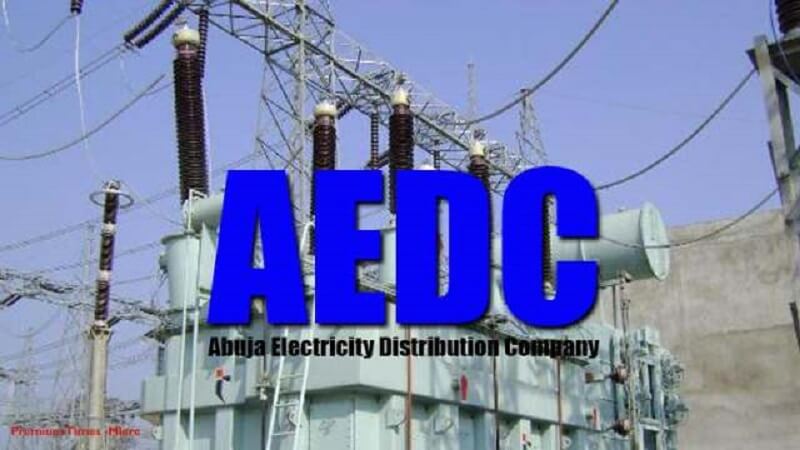12 Years After Privatisation: Stakeholders Demand Revocation Of Discos’ Licences

Twelve years after the privatisation of Nigeria’s power sector, stakeholders have expressed deep concerns over the failure to review the licences of electricity distribution companies (Discos).
To this end, they demanded their revocation over alleged inefficiency and poor performance.
THE WHISLTER recalls that the power sector in Nigeria was officially privatised on November 1, 2013.
This followed the implementation of the Electric Power Sector Reform Act (EPSRA) of 2005, which set the foundation for unbundling the state-owned Power Holding Company of Nigeria (PHCN) into 18 successor companies; six generation companies (GenCos), 11 distribution companies (DisCos), and one transmission company (TCN).
While the generation and distribution companies were sold to private investors, the Transmission Company of Nigeria (TCN) remains under government control.
Speaking with THE WHISTLER in Abuja, the President of the Nigeria Consumer Protection Network, Kunle Kola-Olubiyo, said the Discos have failed to meet their investment obligations and continue to shift operational costs to electricity consumers.
Kola-Olubiyo criticised the inability of Discos to fund basic infrastructure projects, citing examples such as Jahi in Abuja, where residents reportedly contributed as much as N500,000 to fix faults.
He noted that the licences granted in 2013 as part of the power sector privatisation were never intended to last indefinitely.
According to him, more than a decade after privatisation, many Discos are technically and financially insolvent and unable to meet the expectations of Nigerians.
He further lamented the rise in electricity tariffs without a commensurate improvement in service delivery.
“Look at the DisCos, they are not even putting in their investment. There are issues around feeder 6, around Dei-Dei, Kubwa, and in several parts of the country, and end-user customers have been asked to contribute money to buy a transformer.
“This privatisation license was not meant to last forever. The privatisation license that was issued in 2013 was embedded with a mid-term review of five years later, in 2018.
“ The players or the operator induced government institutions or officials that are supposed to call for the review and make sure that the review was not done in 20I3.
“The essence of it is to take stock and know where we have progressed well and where we have failed. Now, ten years down the line, the licenses are not being reviewed, and most of the DisCos are technically and financially insolvent.
“When I say technically, they can’t even buy little equipment.
Everything is being put on the consumers. Some years ago, before 2013, the electricity tariff was less than N10.
“Now, if you vend today in Abuja, N1000 will give you four units. That is about two nights. That is a tariff of N250. So, having a tariff of N250, you are not even guaranteed an efficient service delivery. At least the entire privatisation calls for a review’’, Kola-Olubiyo said.
Also, the National President of the Association for Public Policy Analysis (APPA), Mr. Princewill Okorie, told THE WHISTLER that the DisCos’ licences should not only be reviewed but outrightly revoked.
He accused the DisCos of failing to meet the conditions set during the 2013 handover and questioned their investment record in the power distribution network.
Okorie alleged that the DisCos have repeatedly violated regulations and failed to deliver on service expectations.
He said, “Their licences should not be reviewed. They should be removed. What are they doing? Are they performing? Their licences should be reviewed, and they should be proscribed.
“There should be a new way of handling this (power sector privatisation). Discos are just collecting money without investing.
“Have you done the evaluation performance of Discos? How will you raise their? How much did they buy the investment for, and how much have they invested?
“Have they fulfilled the take-off condition since 2013? Have they fulfilled anyone? What investment have they made in the network? Except that they have been collecting money from the government and the consumers.
“They have been violating laws here and there, and is that what we will renew their licences for? We can’t renew the licences of ineffective and inefficient organisations that are ruining the country. The economy is dying. Their licences are not worthy to be renewed, and that is my position’’.
The reaction comes as the House of Representatives has inaugurated a 19-member committee to investigate the implementation of the Central Bank of Nigeria’s (CBN) National Mass Metering Programme (NMMP).
The development, THE WHISTLER gathered, followed concerns over the disbursement and utilisation of the N200bn loan facility allocated for the initiative.
The committee, inaugurated on May 6, 2025, at the National Assembly, is tasked with probing the free metering scheme launched in 2020, which was aimed at closing Nigeria’s metering gap, eliminating estimated billing, and enhancing transparency within the Nigerian Electricity Supply Industry (NESI).
The committee is composed of three members from each of the six geo-political zones, and chaired by Hon. Uchenna Harris Okonkwo, who represents Idemili North and South Federal Constituency.
THE WHISTLER recalls that the NMMP was designed to be executed in three phases and targeted the installation of six million meters across the country.
Okonkwo, in a statement he issued in Abuja on Thursday said under phase zero, the CBN earmarked N59.28bn for the procurement and installation of one million meters, with an interest rate of nine per cent after a two-year moratorium.
He said preliminary findings showed that N55.4bn was released, resulting in the installation of 962,832 meters, which is below the one million initially promised.
“Additionally, data available to the House indicates that as of 2024, the eleven Distribution Companies (DisCos) that received the funds had repaid only N7.1bn, excluding interest.
“This discrepancy has raised concerns about transparency in the management of the programme, especially regarding the roles played by NESI SSL — the special purpose vehicle set up for the NMMP — as well as Meristem Wealth Management Limited and Meristem Securities Limited, who served as fund managers’’, he said.
He said the committee will also examine why subsequent phases of the programme have been stalled.
“Preliminary research on the NMMP has shown that instead of the pronounced amount of N59.280bn naira for the phase 0, what was released was N55.4bn for procurement and installation of 962,832 meters instead of 1,000,000 meters pronounced by CBN.
“Research has also shown that what the eleven Electricity Distribution Companies who received the loan have paid back to CBN as refund for the N54.4bn they received in 2020 is N7.1bn as at 2024 without mentioning the nine per cent interest on the loan.
“This calls for explanation as to how NESI SSL (the Special Purpose Vehicle created for NMMP), Meristerm Wealth Management Limited and Meristerm Securities Limited (the fund managers) handled the NMMP in the national interest.
“Also, of concern to the House of Representatives is that, the phase 1 of the NMMP which CBN and Deposit Money Banks (DMBS) were to fund for procurement and installation of 1,500,000 meters, as well as, the phase 2 of NMMP which the World Bank was to fund for procurement and installation of 4,000,000 meters has not been addressed.
“Having considered the effect of the above situation on the nation’s economic and social development, as well as transparency and accountability in the management of public funds, House of Representatives, relying on its powers contained in Sections 88(1) and (2) of the 1999 Constitution of the Federal Republic of Nigeria as amended, decided to set up Sub – Committee to investigate the disbursement and utilization of the N200bn CBN loan for NMMP to DISCOs’’, Okonkwo said.
12 Years After Privatisation: Stakeholders Demand Revocation Of Discos’ Licences is first published on The Whistler Newspaper





